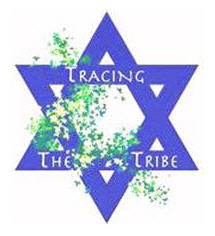His theory is at the root of "Midsummer Night’s Dream: A Comic Jewish Satire," which will be performed in New York City by the Dark Lady Players. In it, the Bard's most-performed comedy is treated as a Jewish lampoon of the Christian Gospels.
A.L. Rowse, an eminent British historian, first claimed in 1973 that Amelia Bassano Lanyer was the enigmatic "dark lady" often assumed to be of African descent who is mentioned in a number of Shakespearean sonnets. Hudson takes this idea much farther to argue that the "dark lady" actually wrote the sonnets, along with the plays, despite the fact that they were composed at a time when Jews had been expelled from England and women were legally barred from publishing their own works.
To prove his case in his 800-page, as-yet-unpublished book, Hudson insists that the "dark lady" possessed exactly the kind of wide-ranging knowledge — of such diverse fields as the Bible, law, music, Italian, falconry and the geography of Denmark — that he is certain Shakespeare lacked. Hudson also depends on the research of Florence Amit, an American-born scholar now living in Israel, who claims to have found hundreds of Hebrew words and phrases in Shakespeare’s works.
According to the article, Bassano Lanyer was born into an Italian Jewish family in 1569 London, adopted into a royal family at age 7, and at 13 became the mistress of Lord Hunsdon, who was Lord Chamberlain in charge of the English stage.
She was the first published female writer in England in 1611 with Salve Deus Rex Judaeorum (Hail God, King of the Jews).
Scholars have often sought to attribute Shakespeare's works to other writers. In making his case for Bassano Lanyer, Hudson has supporters as well as skeptics.
In the article, he says: "My mother was a hidden child during the war. I care about this hidden story. These are the works upon which Western culture was based. I don’t want this to be covered up."




































